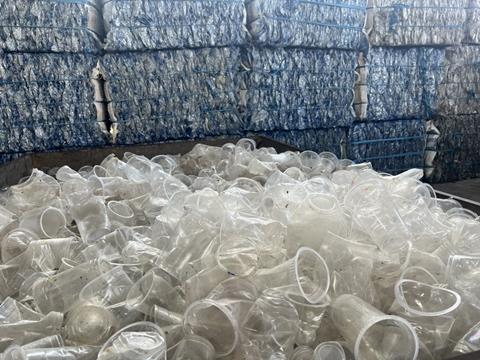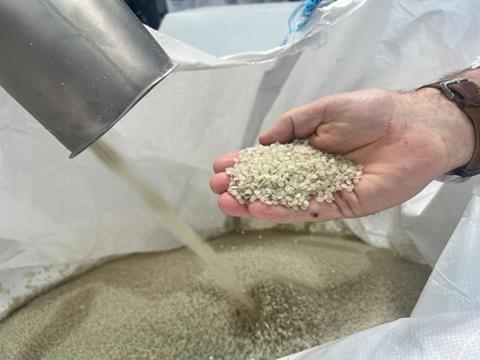Prevented Ocean Plastic, alongside industry stakeholders including Innovia Films, Spectra Packaging, Bantam Materials UK Ltd and PETMAN, has announced the “first ever” food-safe polypropylene (PP) recycled to the European standard (EU 2022/1616).

While recycling rates have improved for certain materials, such as those found in plastic drinks bottles (PET), other forms, such as PP, remain difficult and costly to recycle at scale. Where they are recycled, they tend to be downcycled into lower quality products. Where they aren’t able to be recycled, they are left to litter the natural environment and pollute waterways.
This new initiative brings together global partners – Innovia Films, a division of CCL Industries, Spectra Packaging, Bantam Materials UK Ltd and PETMAN, using Starlinger Viscotec technology, as well as Circulate Capital backed Prevented Ocean Plastic collection in Indonesia - to deliver the first “fully circular” food-safe recycling solution for PP. In its first year, this novel technology is expected to prevent 500 million PP cups from entering the ocean each year, with capacity to expand.
How it works
Prevented Ocean Plastic has established a franchise model for collection. This scalable e model, according to the organization, can be repeated in any at-risk coastal community to drive greater impact and prevent this hard-to-recycle plastic from being left to pollute oceans, waterways and the open environment. Prevented Ocean Plastic intervenes before this material reaches the ocean and open environment, via its controlled collection and sorting process.
The for-profit model, launched at the beginning of the decade, has since been financially supported by five separate institutions, establishing the capability to sort and customise input feedstock for high quality recycling. This capability is key to solving the problems of plastic recycling.

Once collected, sorted and washed, the material is then processed by PETMAN using a “world-first” novel technology from Starlinger Viscotec, turning it into high-quality, food-safe recycled polypropylene (rPP) and then supplied by Bantam Materials UK Ltd (Owner of the Prevented Ocean Plastic programme) to offtakers. Early adopters include Innovia, who will produce BOPP flexible films; Spectra, who will be blow molding and injection molding bottles and caps, and further applications, including trays for fruit, vegetables and protein. The innovation, in the novel technology stage, sees each batch third-party scientifically tested according to industry standards.
Prevented Ocean Plastics states that this same approach to collection and sortation can be aimed at virtually every discarded plastic type on the planet, and next on its list is high-density polyethylene.
Neil Hudson, Technology Expert – Recycling & Sustainability, Innovia Films, a division of CCL Industries, said: “For Innovia a source of EU food contact approved polypropylene (PP) from a mechanically recovered post-consumer source is a game changer. We can now make films for label and flexible packaging in the food and beverage space and contribute to circularity and sustainability. A great team of people have contributed to the process and have accelerated this mechanically recovered post-consumer PP to the eagerly awaited EU food contact rPP.”
Raffi Schieir, Director of Prevented Ocean Plastic, added:
“This is a monumental moment for ocean plastic prevention. This further proves that the Prevented Ocean Plastic franchise model can solve major plastic collection problems at scale and with dignity. My hope is that we can grow this model in every at-risk costal community, so all types of plastic are seen as valuable, and nothing discarded gets left behind. A huge thank you to every stakeholder for their effort and science-based testing over the years to help solve this problem.”
In other news, earlier this year, Closed Loop Partners has published new data - retrieved through utilizing AI-powered vision systems - which reveals high volumes of recycled food-grade polypropylene (PP) has been captured at materials recovery facilities (MRFs) in the U.S.
In May this year, Borealis announced that they are investing over €100 million into a new High Melt Strength polypropylene line, aiming to triple its capacity and address global demand for reusable cups, food packaging, and other recyclable, lightweight polymer foam solutions.














No comments yet